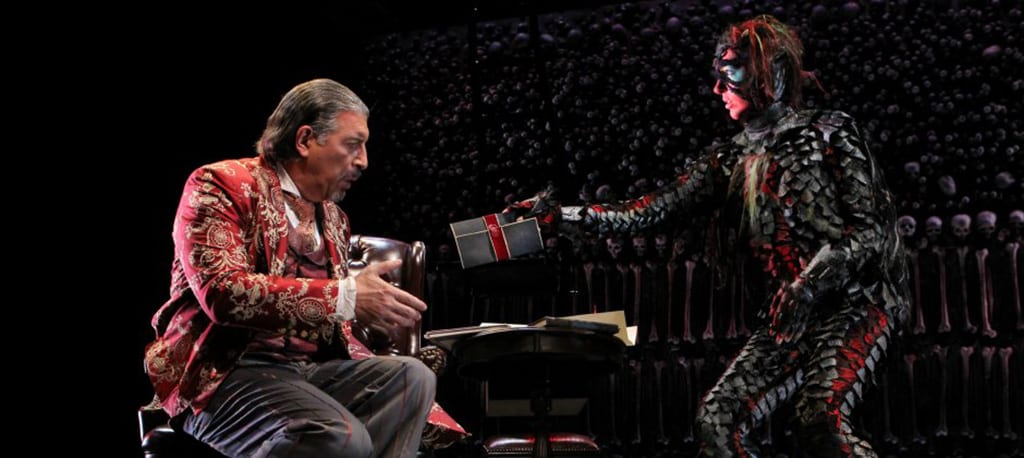If this festive season you don’t feel like going to another panto or another A Christmas Carol adaptation then probably The Screwtape Letters make for a good alternative. An adaptation of C.S. Lewis’ epistolary novella, it examines Christian morality from the point of view of the “enemy”. It follows Screwtape, a high ranking demon who guides his novice nephew in tempting a human soul into damnation, through a series of letters.
The production is sponsored by the Fellowship for Performing Arts, an organisation has as its core objective “presenting theatre from a Christian worldview that engages a diverse audience”. Given also that Lewis’s early writing concentrated on spiritual themes, and he remains one of the most influential Christian writers of the 20th century, when you buy a ticket you know more or less that the play will have a distinctly Christian character with its arguments framed accordingly.
The stage version begins with an adapted reading of “Screwtape Proposes a Toast”, an epilogue to the “Letters” that Lewis wrote before his death in 1963, in which Screwtape delivers a speech to a graduating class of tempters. Then the action moves in Screwtape’s office a classic, dark-wood-leather- armchair- office with a catacomb-style skull and bones wall. Dressed in a red-and-gold brocade smoking jacket, he dictates his letters to Toadpipe, his bestial secretary.
The play becomes a running commentary on the trappings of modern life, deadly sins and God’s love for humans. Screwtape is diabolically shrewd, a strategist and suitably utterly immoral, after all “the safest road to Hell is the gradual one – the gentle slope, soft underfoot, without sudden turnings, without milestones, without signposts.” Max McLean delivers a larger-than-life Screwtape that dominates the scene. Karen Eleanor Wight as Toadpipe mainly embodies the various case-study characters Screwtape describes, adding life to the piece, with her expressive presence.
And yet despite the apparent effort that has gone to the adaptation it fails to impress and I cannot really put my finger on it. C.S. Lewis’ prose and analytic ability is present and there are instances it shines; the inverted morality is also a useful dramatic tool. Maybe it is McLeans dominating Screwtape that steals the limelight form the text, which in turn makes the performance lagging occasionally. Maybe it is the preaching character of the play that doesn’t strike a chord in today’s increasingly secular audience. Maybe it just is too difficult to adapt a series of letters, especially with a religious only theme into a play that keeps the audience engaged at all times. Despite the shortcomings though, it has thought provoking elements and is definitely a reminder of the dangers of ethical complacency, no matter how we define our ideological makeup.

